Full-scale war in Ukraine is grinding on, the demand for the production of high-tech weapons products is growing, and specialists in engineering specialties are in short supply. Igor Sikorsky Kyiv Polytechnic Institute, which has a glorious history and whose graduates have made a major contribution to the development of science and technology in Ukraine and worldwide, is ready to face the challenge and increase the output of these highly demanded, highly qualified specialist engineers right now. In response to the demand of the time, new educational programs have been launched to train professionals in humanitarian demining, robotics, artificial intelligence, prosthetics, etc., and the university has taken a course on energy efficiency.
Ukrinform sat down for an interview with Anatoly Melnychenko, rector of the National Technical University of Ukraine “Igor Sikorsky Kyiv Polytechnic Institute” (KPI) to discuss the professional competencies this university, one of the oldest and largest in the world, provides to its students, and the effort being done so that Ukraine does not eventually face the threat of a short supply of human capital in key sectors of the economy.
- Mr. Anatoly, which educational programs at KPI have grown in demand from applicants since the beginning of the full-scale invasion, and which ones need to be grown in demand strategically?
- The demand from applicants is one aspect to the demand for university educational programs, and this demand often does not reflect the actual needs of the economy now and in the future. Therefore, it is necessary to pay attention to the labor market's demands for specialists. Thus, with the beginning of the full-scale invasion, the demand for engineering specialists from employers has increased enormously. They need specialists in applied mechanics, chemical technologies, biotechnology, materials science, electronics, telecommunications, and, of course, the IT.
And here I would like to highlight one of the problems of the modern Ukrainian society: applicants (or applicants’ parents) often choose specialties that may probably be less in demand by high-tech businesses in the future.
On the part of applicants, sustainable demand has remained high for specialties related to the IT sector: software engineering, information technologies, computer engineering, computer science. In this context, cybersecurity can be singled out - this specialty is in demand that is growing steadily. Additionally, the university is among the leaders in terms of the number of students admitted to training in aviation engineering, biomedical engineering, avionics, and nuclear power engineering. Educational programs in the humanitarian and social sciences are also in demand. Psychology, for example, was in high demand among applicants during last year’s admission campaign.
- This trend, I think, is true not for your university alone, but also for all of Ukraine.
- That’s true, indeed, but KPI stands out in that, along with providing training in psychology, we also provide training under the certificate program "Military Psychology". Today, there is already the demand for working with people who are current combatants and with those who are returning home from the frontline. For this purpose, we have launched a center for Veterans’ Development, and introduced the position of Assistant Rector for Work with Veterans and Veterans' Organizations.
- Are there specialties that, despite being high in demand among employers, in lesser demand among potential students? What are these specialties, and why does this gap in demand exist?
- Unfortunately, this gap does exist. The explanation is that, during the years of Covid pandemia, lockdown, quarantine and full-scale invasion, the quality of training in mathematics, physics, and chemistry has fallen. And even when the Ukrainian economy is ready to absorb tens of thousands of specialists in the field of chemical technologies, for example, as few as 3.5 thousand students chose the National Multi-Test (NMT) in chemistry last year. Accordingly, fewer applications for these specialties have been submitted. This is not just about our university, but, given our traditions, the availability of a robust laboratory and research base, and highly experienced faculty, we understand that this could pose a threat to our country if, at some point, we encounter a significant shortage of human capital in key sectors of the economy. In fact, we are already experiencing this today.

WE LAUNCHED A BACHELOR'S/MASTER'S EDUCATIONAL PROGRAM IN HUMANITARIAN DEMINING
- Have new educational programs been launched at the university in response to the demand of the time?
- Yes, of course. We have launched both educational and certificate programs in engineering of unmanned and autonomous systems, electronic warfare technologies, robotics, critical infrastructure cybersecurity, engineering of military weapons and military equipment systems, as well as educational programs in humanitarian demining at the bachelor's and master's levels.
- What are you talking about, given that you don’t provide training programs for munition disposal experts?
- One is not required to hold a university degree to be trained in munition disposal, it is enough to undergo training at a qualification center. In turn, training university degree specialists in this domain allows for providing by far broader competencies in both humanitarian demining and modern innovative solutions for clearing territories from the explosive remnants of war and the usage of land restoration technologies. We are aware that the demining challenge will remain with us for decades, taking into account the size of the territories that will require professional processing. KPI is doing what a modern Ukrainian university is supposed to do so that future generations do not inherit this burden. One way to reduce the duration of clearing Ukrainian lands is to become not just consumers of demining technologies, but also a center where these technologies are developed and modernized. After all, we live in a time of opportunities. And this is an opportunity for our young specialists to become leaders in this field worldwide. The graduates of these educational programs will be engaged in the restoration of ecosystems after the war ends, and will also have the opportunity to work with leading mine action operator companies, consulting and humanitarian organizations, government organizations and international funds.
Last year, an interdisciplinary educational program in robotics was launched, which integrates two specialties - automation and applied mechanics. Robotics is a field that integrates IT specialties with those in mechanics and electronics. This is one of the areas that will be given priority development effort at the university. Today, robots perform important civilian jobs, but for us now, these are robotic technologies for defense applications in the first place. You can hear in the media that ground robotic platforms are already being deployed to individual sections of the frontline, and Ukraine was among the first to use them in real world combat scenarios.
We have updated a number of educational programs related to artificial intelligence. There is no need to convince you how fashionable artificial intelligence is nowadays. Artificial intelligence technologies are penetrating into lots of different sectors: education, health care, military technologies, transport, energy, the media sector, research activities, both in fundamental and applied, across frontier areas of science and technology.
- Don't you see a certain threat in this? Recently, the expansion of the AI infrastructure has even become worrying... And some jobs may even disappear because of it.
- It depends on which threats we are talking about, because some of these threats are hyperbolized and far-fetched, and are currently being replicated in modern cinema. It is better to talk about the opportunities the AI provides. Indeed, some threats do exist: growing social and economic inequalities, widening technological gaps, misuse of AI for political manipulation and disinformation. One of the threats related to educational activities is obvious - if humanity, especially younger generation, mindlessly rely only on artificial intelligence services in their educational activities, then at some point we will be faced with the risk of degradation of human intelligence. Incidentally, we at the university have developed a policy on the use of AI in academic activities. And regarding the fact that some jobs are disappearing due to AI and the development of digital technologies, this is only reasonable. Take, for example, modern digital services for providing administrative services. Nowadays, we rarely need to contact TsNAPs (Centers for the Provision of Administrative Services) for certain types of services, where they were previously provided by employees, who are currently becoming less needed. But we are not going to turn into new Luddites in the confrontation with AI, the nature of work will simply change, and therefore there will be a need for retraining.
Artificial intelligence will definitely replace certain specialties, but what matters is how humanity will respond to this challenge. We need to change approaches to the appropriate use of AI in various fields of activity. After all, AI allows us to make work processes in many areas more efficient. At the same time, only human being has the creative ability and can go beyond the scope of the knowledge and algorithms that AI has. Artificial intelligence is well capable of doing lots of routine jobs or the ones that can be performed at the level of formal-logical operations. But we cannot lose what concerns human genius and intelligence. Unfortunately, nowadays it is impossible to ignore the expansion of the “digital dementia phenomenon” (Digital dementia is a term coined by neuroscientists to describe the deterioration of cognitive abilities due to the over use of digital devices such as smartphones, computers, tablets, as well as excessive reliance on social networks and the Internet. This phenomenon is linked to the symptoms of dementia, such as memory loss, decreased concentration, and impaired learning abilities. The term was popularized by German neuroscientist D. Manfred Spitzer, wo warned that heavy reliance on digital technology could lead to cognitive deficits similar to those seen in dementia patients, – Ed.).
- And this is probably a big problem for today's students – they rely on the Internet and skillfully use AI when doing their homework.
- There are numerous challenges involved in this. But it's not just about artificial intelligence. The concepts of Alvin Toffler's “clip culture” and Abraham Mol's “culture mosaic” has long been known. Clip culture is not systemic thinking, but mosaic. Fragments of something that are not woven into the integrated system of knowledge and an adequate assessment of actual reality. And this can really be a problem for those who are very addicted to TikTok, Instagram and other social networks. Therefore, our university tries not only to teach a profession to students, but also train a person to think critically.
- What is the current format of study at the University?
- Mixed. First of all, for safety reasons. At the same time, we are actively taking measures to increase the number of bomb shelters in dormitories and academic buildings - they are being repaired and refurnished, equipped and certified by the State Service for Emergences. Over the past six months, we have commissioned new shelters for 700 people in educational buildings and dormitories. Currently, the first phase of a large shelter construction project is soon to be launched into operation in one of the largest academic buildings, in which students were actively engaged by providing suggestions as to how to make it more comfortable for use not only as a shelter proper, but also as a students’ space.
That said, lectures are mostly held online, and laboratory classes and practical studies - especially in engineering specialties – are sought to be conducted in offline mode. First, engineers must work with equipment, they do not have it at home. And virtual laboratory work, no matter how qualitatively it is performed using software, cannot replace work with "live" equipment. Moreover, the equipment we use is truly unique, such as microscopes at the Institute of Materials Science and Welding. There is a significant number of processes that an engineer must experience, as a saying has it, “by touch”.
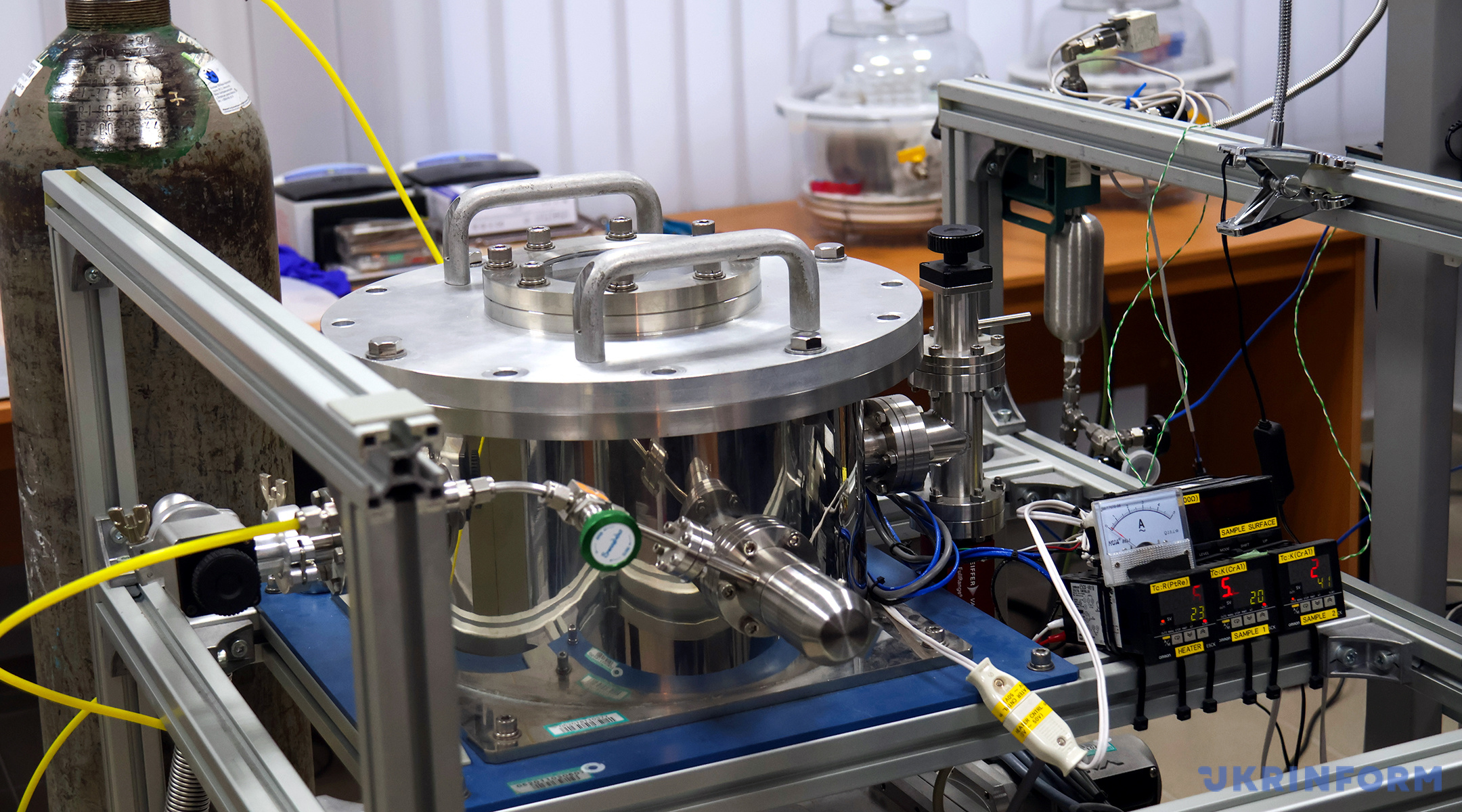
Even those students specializing in socio-humanitarian studies – sociologists, linguists, lawyers – are being transferred to offline learning, because there are issues of both professional training and socialization. Like I said above, the Covid quarantine and the first two years of war have shown that there are threats to the quality of education where it is conducted online only.
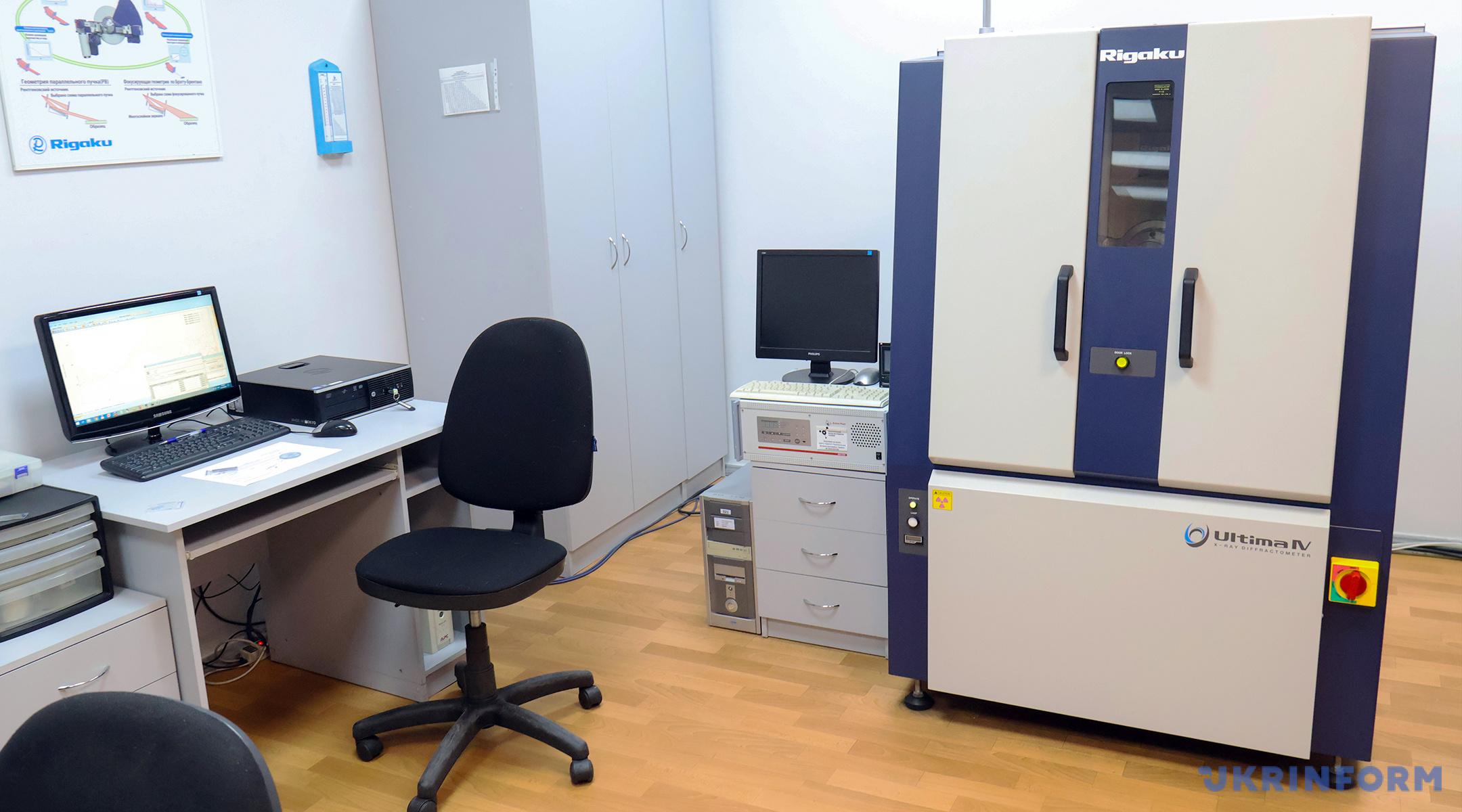
- Training specialties in technical fields requires sufficient materials and equipment, high-quality laboratory appliances. Didn't the situation with this become more complicated during the war?
- Where there is insufficient availability of high-quality laboratory appliances, it is difficult to train good specialists. For a certain period, less attention was paid to this issue, and now we need a significant update to our laboratory base. We are looking for opportunities - both intra-university and through sponsorship. For example, the company Ajax Systems helped equip measuring laboratories at the Department of Instrument Engineering, and with their assistance, laboratories at the Institute of Telecommunication Systems are currently being equipped.
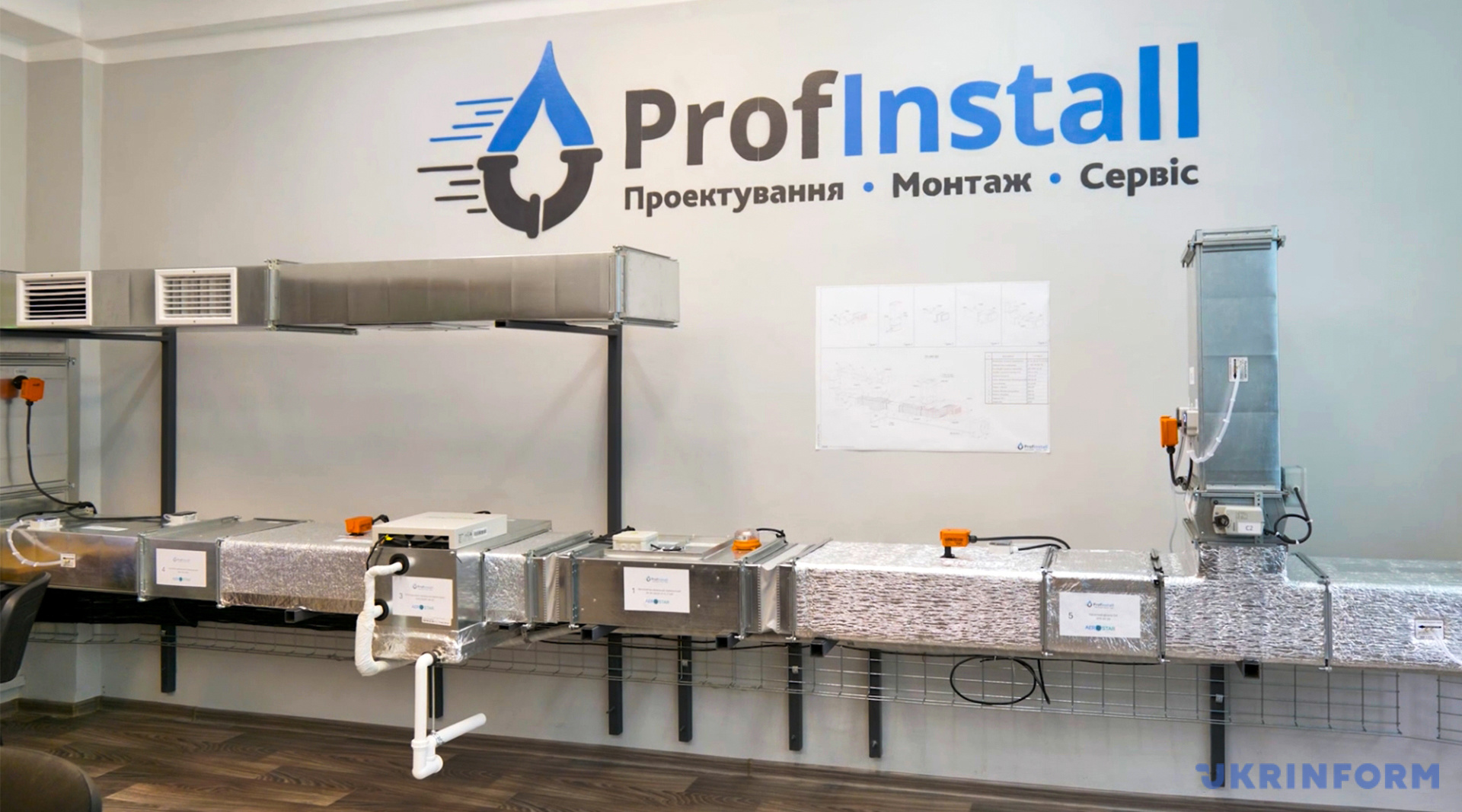
Melexis company provides assistance in equipping the analog electronics laboratory. Siemens provided the latest equipment for the Department of Electrical Engineering and Automation. A laboratory of radio engineering signals and processes has been launched at the Radio Engineering Department with the support from Skyfall -- one of the largest miltech companies in Ukraine. A heating, ventilation and air conditioning laboratory has been opened at the Educational and Scientific Research Institute of Atomic and Thermal Power Engineering with support from the major companies in this technology -- Profinstal and Aerostar.
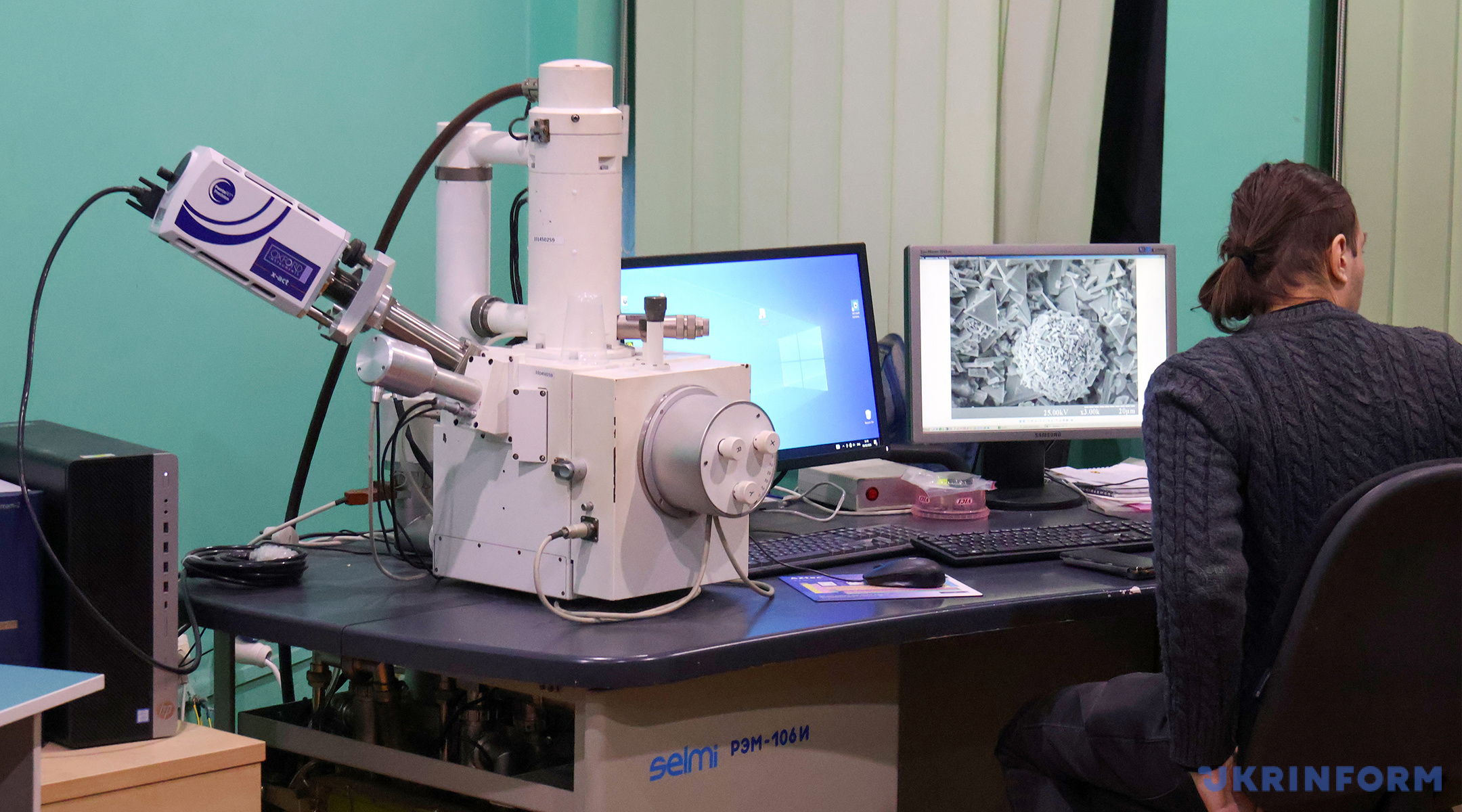
A renewable energy laboratory has been launched at the Educational and Scientific Research Institute of Energy Conservation and Management, which was created in partnership with DTEK Renewable Energy. A laboratory for cybersecurity of automated control systems has been opened at the Educational and Scientific Research Institute of Physics and Technology. These are just several examples; in the future, we plan to expand this list, because the availability of a high-quality material and equipment base is key to training top specialists.
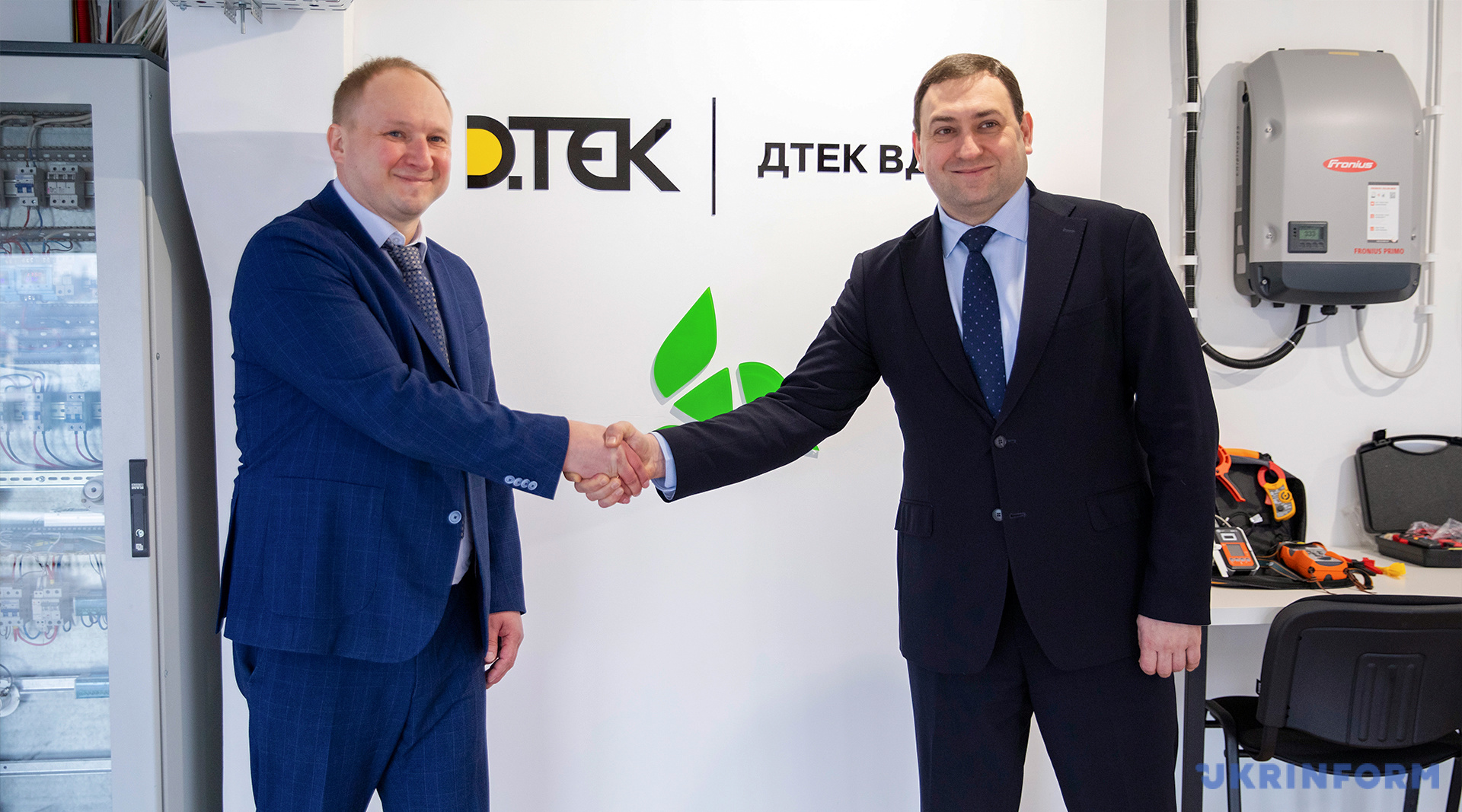
In furthermore to this, there are four unique laboratories at the E. O. Paton Institute of Materials Science and Welding, which are integrated into the Center for Collective Use of Scientific Equipment. Its services are tapped into by all of Ukraine. Requests are coming from everywhere, because the Institute features unique equipment of leading Western and Japanese brand names, which allows studying the structures of metals and other materials to obtain world-class technologies and innovative solutions. And in order to be able to conduct research not only in between blackouts, but continuously, this center is equipped with solar panels and electricity storage devices.
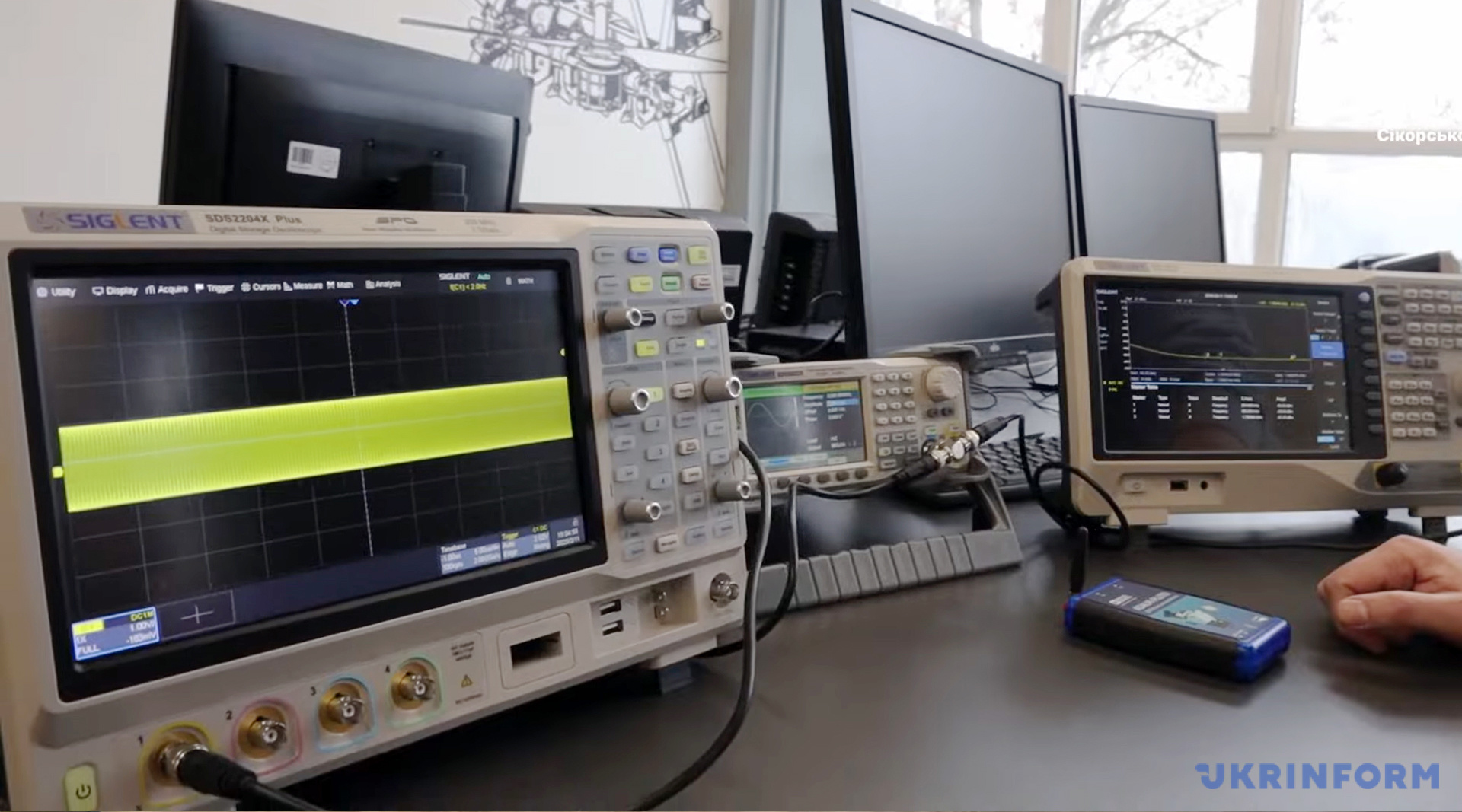
WE, BEING UKRAINE’S LEADING TECHNICAL UNIVERSITY, CAN RESPOND TO THE CHALLENGES OF THE TIME
- Does the university plan to become autonomous in terms of energy efficiency and minimize energy supply costs?
- That's true, our task is to find ways to diversify energy risks so that to ensure continuous educational process. We also installed solar panels bought with sponsored money to power our library. This is extremely important, because we maintain an electronic archive (about 67 thousand units of publications). Access to the servers on which the electronic repository is located must be continuous. By the way, everything that KPI publishes now is in electronic format. Moreover, the library stores more than 2 million printed copies.
Like I said above, we have recently launched a second autonomous solar power plant at our university, which has the capacity enough to provide power also to the Center for Collective Use of Scientific Equipment.
Our current plans include installing a solar power station in one of the academic buildings at the Department of Informatics and Computer Engineering – to be paid for under international scientific research projects.
We are also working on a project to install cogeneration plants, which allow us to simultaneously produce thermal energy for heating our buildings and for power generation. It is important for us to prove that we, being a leading technical university in Ukraine, can respond to the challenges of the time. Energy conservation and efficiency are integral components to the University Development Strategy, endorsed in December 2024.
UKRAINE IS GOING TO EVOLVE INTO A LEADING HIGH-TECH WEAPONS MANUFACTURER
- The University is a generator of engineering education, where knowledge of physics, chemistry, and biology is extremely necessary. But the level of school knowledge in these subjects, like you said, has decreased. How can we encourage modern-day people to understand again how important these disciplines are?
- This is a complex problem. With career guidance measures by the university alone, we will be able to solve only part of it, neither will additional educational measures help much. This takes a collaborative effort by general education schools, universities, Government Authorities, as well as businesses. Businesses are awaiting proficient specialists from universities, but they must keep in mind that, if there are not enough students in engineering fields, there will be a shortage of specialists in these fields. It is precisely businesses that need high-quality specialists with a university degree, armed with modern knowledge, skills, and abilities.
- How could the Government be helpful here?
- Through the support of school teachers, especially in the field of natural sciences. Because competition for admission to pedagogical universities, where teachers of physics, mathematics, chemistry, and biology are trained, is also low. And if there are no teachers of these disciplines, where will we get high-quality applicants?
Next is the active promotion of the idea, including through the media, of innovative engineering as a key component to the economy of the future and development of Ukraine. Of course, the structure of the economy will change, and therefore we must predict its needs and train those specialists who will be needed to work at high-tech enterprises, especially in the security and defense-industrial sectors.
I do believe that Ukraine is going to evolve into a major manufacturer of high-tech military weapons and equipment systems, with which we will be able to compete in global markets. And to this end, engineers will be needed, ranging from chemical technologists to mechanics, materials scientists, and electronics engineers. Because in order to create a bulletproof vest, for example, plates must be made of a material that is both strong and light. Alternatively, inner core of a bullet or projectile must be made of a material that is strong enough to pierce an armor. And this is true not only for weapons, but concerns any part of a machine, whether it be wear resistance, robustness, or economy of use. That said, we are currently considering the materials science to be one of our focuses.
The idea of the vital importance of engineering in its various forms must be promoted, and Igor Sikorsky Kyiv Polytechnic Institute is actively doing this. Where there will be a modern engineering sector- there will be a high-tech economy, which means there will be jobs for specialists in all other fields.
UKRAINIAN UNIVERSITIES ALMOST ALL HAVE SEEN A DROP IN FOREIGN STUDENTS
- There used to be lots of foreign students studying at KPI, but they decreased in numbers after the full-scale invasion began…
- The war certainly has played a role in this regard. We still have foreign students living on-campus, but not as many as before the full-scale invasion. Some countries simply do not recommend their citizens to stay in Ukraine, and at the same time, there are countries that are not very keen on recognizing the degrees obtained through distance learning. Therefore, Ukrainian universities almost all have seen a certain drop in foreign students. But our country has something to offer: Ukrainian education, no matter what anyone says, is of high-quality while being cheaper compared to European or American counterparts.
- Students from which countries choose KPI?
- In recent years, students from the People's Republic of China, Turkey, India, from the Middle East, and African countries have studied at our university. There are also students from the countries of the former Soviet Union.
- Let’s continue the topic of studying abroad, but from a different focus. We see advertisements promoting fee-free or cheap education (often in very low-ranked universities in Eastern Europe). Young people are practically lured to study abroad. Don’t you think the Ministry [of Education] should take measures to counteract that trend?
- We can hardly censor such advertising in any way. I agree with you in that a significant number of our young people enter foreign universities that are not known for being academically competitive, and lose out to Ukrainian universities in terms of the quality of education provided. So it turns out that we have actually lost a student who will chose to study abroad just to obtain a degree from a university that is less preferrable among potential employers.
Reversing this trend takes effort, most particularly an adequate information policy, clarification. This is being done, but sporadically. Some of the government ministries are trying to advertise the advantages of education in Ukraine, urging potential students to believe in Ukrainian education, while at the same time brushing aside often unjustified criticism or outright hate.
Universities are now competing for potential students. For us, it is not just an applicant that is important, but an applicant who will be able to meet our high requirements in the future. More than a thousand students are expelled from KPI every year; our university don’t keep those students who are unwilling to study.
- Yeah, you are harsh…
- We are trying to keep the bar high. Believe me, it’s not that easy: the potential students’ level of knowledge has declined after the Covid pandemia, after Russia’s military invasion, after “distance” schools. That is why we are conducting various adaptation courses to improve the knowledge of first-year students so that they can withstand the university’s high level of demands.
Our focus is on fundamental training, which is a guarantee that with an appropriate level of fundamental training in basic disciplines (higher mathematics, physics, engineering graphics, theoretical mechanics, theoretical foundations of electrical engineering, etc.) in place, the student will be better equipped to navigate in specialized professional disciplines. Fundamental training provides an element of universality in the training of an engineer and helps our graduates better adapt to interdisciplinary approaches used in modern engineering.
IN THE FIRST YEAR OF THE WAR, ABOUT 10% OF FACULTY MEMBERS WERE STAYING ABROAD. CURRENTLY THESE ARE ONLY ISOLATED CASES
- From what I understand, employers are ready to hire not only degree holders from your university, but also students. In what format does this happen?
- This represents an example of best practice for a collaboration with businesses, enterprises, which is implemented in several formats. The first is the common referral to practice. But the internship usually lasts a month, and by the time the intern gets used to the enterprise, s/he already has to leave and get a graduation exam for internship. But there is another form that we are very actively developing - dual education. That is, part of the educational process (at least 25 percent) is carried out right at the enterprise. If we sign an agreement on the organization of dual education (and we already have agreements with more than 70 different enterprises), the student must be hired by that enterprise, must be given a job, and a supervisor must be attached to her/him. The University controls some of the processes, directly agrees on the educational components s/he will be taught at the enterprise. And when the student graduates from the University, the employer will most likely hire her/him immediately after graduation. It is true that so significant a shortage of personnel has become that businesses are ready to hire even second or third-year students specializing in particular engineering specialties.
- Are students ready for this? Do they go to work at those enterprises after graduation?
- Yes, they are ready. And I will tell you that, today, a student who graduates from KPI can earn a salary of an engineer or other specialist that is comparable to, or sometimes even higher than that of the lecturer who taught him at the University. This is especially true for IT specialties. At the same time, lecturers can earn additional revenue by participating in scientific research projects or winning academic (research and educational) grants.
- And what about teachers and lecturers? Wasn’t there an outflow of teaching professionals with the beginning of the full-scale invasion?
- We didn’t experience any significant outflow. In the first year of the war, about 10 percent of the teaching staff left for abroad. Currently, these are only isolated cases. Moreover, teachers and lecturers even have to compete for jobs. The number of teachers has been reduced in proportion to the number of students, that is, if students are decreasing in numbers, there will a proportionate decrease in the number of teaching positions. This may pose a risk in terms of the preservation of unique scientific schools, and we are doing to we can to mitigate that risk to a minimum.
- The University is not only about education but also scientific research. What are the priorities for your faculty in this area?
- The previous University administration made a decision, and I continue implementing it, that we spend our basic funding only on projects related to strengthening the country’s defense capabilities. Shall we publicly discuss defense-related projects?
-- I don’t think so.
- Then, let me tell you about a few other areas of our research effort. This is the space development program in the first place. KPI is perhaps the only university in Ukraine to have a space-related program of its own. Back in 2014, the PolyITAN satellite - the only Ukrainian cube satellite -- was launched into Earth’s orbit and is still flying there. Right now, a record of Ukraine is undergoing certification procedure regarding the duration of a satellite of this type working in space. And this is actually a student’s satellite! We are currently working on a series of same type satellites, but more loaded, functional, which will be able to perform remote sensing and Earth monitoring tasks among others.
- What kind of tasks has PolyITAN been performing during these ten years?
- These tasks are very simplified, it was a trial version, but it continues transmitting signals. This is an important aspect, because it allows for testing the radio signals being transmitted. We are currently working on another satellite project in a collaboration with the Poznań University of Technology, and we are finalizing our own projects. In other words, we have a comprehensive space science program, which brings together both our scientists and we are trying to involve students as well.
- And what about other scientific projects of priority that you are pursuing?
We are working on a variety of research projects in the field of energy - renewable, alternative, nuclear, research projects aimed at physical protection of power stations. We have achieved much in this respect, and especially so given that two of the University’s institutes and one college provide training for specialists in the energy sector, support research and training programs throughout the entire cycle – ranging from electricity generation and distribution to transportation to end consumers. These are the Department of Electrical Engineering and Automation, the Institute of Energy Conservation and Management, and the Educational and Scientific Research Institute of Atomic and Thermal Power Engineering. Half or, perhaps, even more of the people employed in Ukraine’s nuclear energy sector are holders of degrees from KPI.
We are also working on a research project related to water purification, which is of vital importance for the country. And, of course, we are pursuing projects in the fields of IT technology, mechanical engineering, aviation engineering, environmental safety, etc.
We are closely engaged in a research activity such as healthcare, for which we have a specialized department of biomedical engineering.
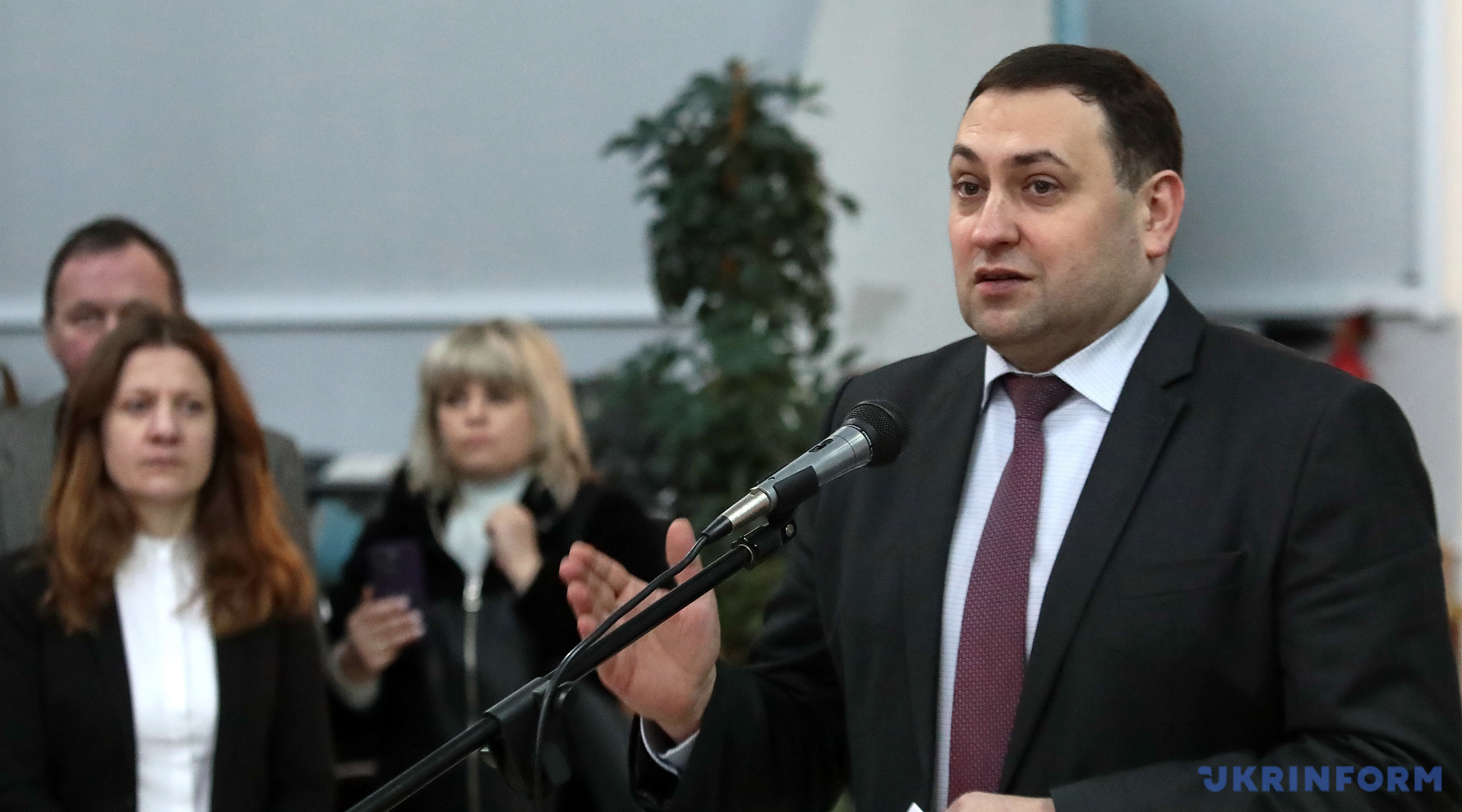
WE HAVE WONDERFUL DOCTORS, BUT HEALTHCARE SCIENCE DEVELOPMENT CANNOT PROGRESS SUSTAINABLY WITHOUT ENGINEERING SOLUTIONS
- What kind of specialists does the Department of Biomedical Engineering train?
- A biomedical engineering specialist is engaged in the development and improvement of healthcare technologies that integrate engineering sciences with biology and medicine. This specialist works creating and testing various medical devices and systems, such as diagnostic devices, implants, endoprostheses, orthoses, biosensors and other devices that help in the treatment and diagnosis of the most common diseases. This specialist also participates in the development of new technologies for restoring human health, using engineering approaches to solving healthcare problems.
- According to official statistics, since the beginning of the full-scale war, there have been more than 370 thousand war wounded persons in Ukraine... So specialists in these specialties are in extremely high demand.
- Exactly so. While previously, projects in biomedicine were given lower priority, this has now become highly relevant, because people should maintain a full quality of life with the right support and treatment.
Beyond that, it is critically important to develop a research line in the field of biotechnology. This is about food safety, safeguarding people from health hazards related to the use of modern materials, as well as pharmaceuticals. For that purpose, KPI cooperates with the pharmaceutical companies Farmak and Darnytsia - our employers who are closely engaged with the University, many of our graduates are employed at these companies, on positions of heads of departments and divisions, and they are requesting us for more specialists.
We have signed a memo of cooperation with the National Academy of Medical Sciences, we are aligning our positions more and more, because our doctors are excellent, but without engineering solutions, medical science development cannot progress in a sustainable way. I am grateful to the President of the National Academy of Medical Sciences, Vitalii Tsymbalyuk, for the fact that the Academy’s institutions are treating us as a major partner. Particularly the Department of Acoustic and Multimedia Electronic Systems has pursued a series of scientific research projects -- including a new method for determining hearing impairment and psychoacoustic measurements -- that have even been written about by the media in the UK. For use in that project, the Department of Electronics is developing broadband technologies and related innovative medical devices for diagnostics and treatment.
OUR UNIVERSITY IS THE ONLY IN UKRAINE WITH SEVERAL SCIENCE PARKS OF ITS OWN
- Mr. Anatoly, we have talked about education, about science, but the University is also an environment of innovations. At the end of the conversation, I would like to learn more about this line of KPI's activity.
- We have launched Sikorsky Challenge, an ecosystem of innovative projects that aims to pick out persons of creation, engage them to be trained in creating own businesses and startups. Our University is the only in Ukraine to own several science parks: Kyiv Polytechnic Science Park, Sikorsky Challenge Additive Technologies Science Park, and Finkord-Polytech Science Park. Each of the science parks has its own clearly defined tasks and clearly defined object of study to preclude competition between them. With these science parks we are in a better position to solicit partners from Ukraine and elsewhere. Currently, the University is expanding cooperation with Great Britain, France, the USA, and Finland among other countries.
There are currently debates being held about updating the legislation on science parks, and we would like to get some focuses changed, because science parks are an effective tool for integrating Ukrainian science into business operations. In areas where public universities experience difficulties, a science park can be a platform to make particular processes faster and more efficient. This will shorten the way for a scientist to go from an idea to a startup. Regarding the formation of an engineer-businessman, there is another important aspect to this: an engineer can get a job in a company, but he can, likewise, create own engineering business! For example, our diploma theses in engineering sciences include a chapter devoted to startup justification. If a student has developed an engineering model or a product, he then will have to also suggest how to bring it to the market and earn money. This is the knowledge and skills we are also trying to teach students. KPI has chosen this development strategy because it wants to remain a university with a robust innovative capability and growth potential.
Yes, the education system is experiencing difficulties, but it is difficult for everyone now. There is perhaps no activity in which everything is rosy. The question is different if we take the examples of post-war Japan or South Korea. Perhaps, we will not be able to adopt all aspects of their experiences, but these are the examples of the countries which, having radically modernized their education and science systems, have been able to break through to among the global leaders in innovation. I therefore stick to my hope that Ukraine holds a good chance of success if we preserve the scientific and educational potential and manage it in an efficient way.
Interviewed by Lyubov Baziv, Kyiv
Photo: Pavlo Bagmut, Volodymyr Tarasov
